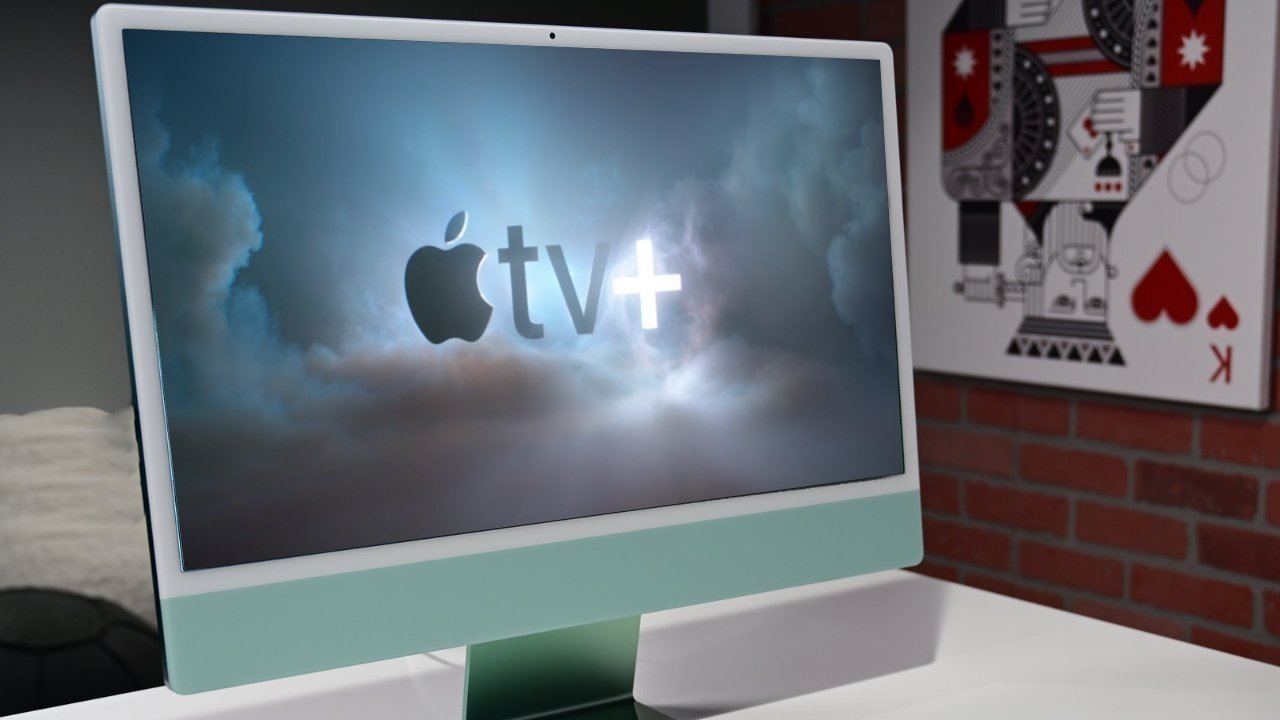UK plans regulations affecting Apple TV+, other streaming services
Streaming services like Apple TV+ face more regulation in the United Kingdom, with the government planning to bring video on-demand apps under the same rules as broadcasters.

A whitepaper by the UK government intends to force streaming services providing video content to adhere to rules and standards that broadcasters like ITV and Channel 4 must follow. Apple TV+, Netflix, Disney+, and other apps currently don't have to deal with the Broadcasting Code, but if implemented, those roles could apply in the future.
Under the proposals, regulator Ofcom will monitor and enforce guidelines on streaming services, similar to how it does the same to broadcast channels, reports Deadline. Ofcom would create a new Video-on-demand Code that could function similarly to the Broadcast Code.
The rules in question would require streaming services to make sure audiences are protected from material deemed to be harmful or offensive. Principles relating to privacy, fairness, and accuracy would also have to be adhered to.
Streaming apps breaking the code could invoke fines of 250,000 pounds ($314,000) or up to 5% of an organization's revenue, whichever is bigger.
The rules would also only apply to larger streaming apps. "Respecting issues of free speech and proportionality, smaller, lower risk on-demand services in the UK will continue under existing rules," the executive summary of the whitepaper reads.
It is unknown when Ofcom would have to create and implement a VOD Code, if the plan goes ahead. However, the usually slow nature of introducing legislation and regulation could result in a wait of a few years.
Read on AppleInsider

A whitepaper by the UK government intends to force streaming services providing video content to adhere to rules and standards that broadcasters like ITV and Channel 4 must follow. Apple TV+, Netflix, Disney+, and other apps currently don't have to deal with the Broadcasting Code, but if implemented, those roles could apply in the future.
Under the proposals, regulator Ofcom will monitor and enforce guidelines on streaming services, similar to how it does the same to broadcast channels, reports Deadline. Ofcom would create a new Video-on-demand Code that could function similarly to the Broadcast Code.
The rules in question would require streaming services to make sure audiences are protected from material deemed to be harmful or offensive. Principles relating to privacy, fairness, and accuracy would also have to be adhered to.
Streaming apps breaking the code could invoke fines of 250,000 pounds ($314,000) or up to 5% of an organization's revenue, whichever is bigger.
The rules would also only apply to larger streaming apps. "Respecting issues of free speech and proportionality, smaller, lower risk on-demand services in the UK will continue under existing rules," the executive summary of the whitepaper reads.
It is unknown when Ofcom would have to create and implement a VOD Code, if the plan goes ahead. However, the usually slow nature of introducing legislation and regulation could result in a wait of a few years.
Read on AppleInsider

Comments
Since they said that "smaller services in the UK" are exempt, this looks like unfair trade rules. The WTO could step in and declare that the rules have to be applied equally.
The idea behind meeting standards is that people flipping through the channels could come across a broadcast, and therefore the broadcast must meet public decent standards.
Streaming services have not been required to meet those standards. First of all, they do not use a limited public resource. Secondly, people have to actively choose to subscribe to the streaming service.
First of all, the public airwaves are generally considered a public good, is the internet private or a public owned entity.
Streaming is a subscribed service (including pornography) which involes some degree of a contract. It is not available to anyone with access to a device like a television, it involes a log-on process which implies consent.
The concept behind broadcast censorship is that the spectrum that broadcast uses is limited, therefore it is a public resource and the government has to regulate it for the public good. The internet doesn't work like that. Does Ofcom propose to regulate YouTube and Facebook, which are far more pernicious as a source of bad stuff than Disney and Apple? The internet is full of porn right now, and stuff worse than porn, what is Ofcom going to do about that?
Netflix, Disney+, AppleTv+, etc are not broadcast TV. They're stuff you find on the internet, and far from the worst stuff too. They're pretty mild. Both Disney and Apple have valuable brands to protect. They can be trusted to self-censor far more thoroughly than practically any other entity on the internet. Netflix doesn't seem to care quite as much about its pristine brand, but I haven't noticed really awful stuff there like I could easily find on YouTube. Gwynneth Paltrow's silly Goop show is about as bad as it gets.
But that's okay, because this is going to be very entertaining. About half a second after Ofcom censors something on Netflix etc., Brits (who haven't been paying attention for the most part) will find out about it in a predictable Twitterpocalypse. The Streisand Effect will kick in as Brits access the "offending" material via VPN or plain ole piracy and whatever got censored will be the new Squid Game, deserving or not. So go ahead Ofcom, I've got the popcorn ready.
But of course the real issue here is that Netflix, Disney+ and AppleTV+ are producing professional content while YouTube and Twitter don't. Ofcom is actually worried about economics here - that British content isn't being produced and viewed in the same proportion as before. YouTube and Twitter aren't economic threats in that way.
YouTube and Twitter are user-generated content and present different problems.
- Different speed limits
- Not able to utilize certain lanes
- Off limit roads
...